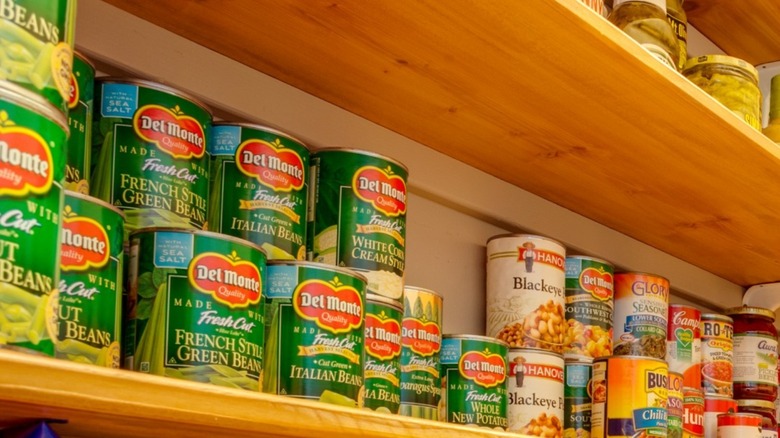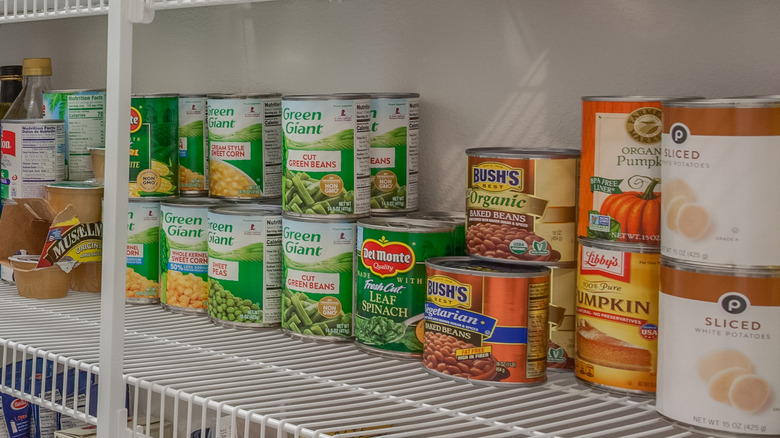Why You Should Always Keep Canned Vegetables In Your Pantry
Prior to 2020, you might have had one or two canned vegetables in the pantry. During the pandemic, however, you may have been one of many who stocked up on canned goods, including veggies, as the items flew off the shelves nearly as fast as toilet paper (via Rolling Stone). Pandemic aside, there's good reason to keep your pantry stocked with canned vegetables.
Per CBS News, the USDA says eating five to nine servings of fruits and vegetables per day can reduce the risk of heart disease, stroke, and early death. According to researchers from the School of Public Health at Imperial College London, 10 servings a day is the optimal amount. Dr. Dagfinn Aune, who spearheaded the report, stated "We wanted to investigate how much fruit and vegetables you need to eat to gain the maximum protection against disease and premature death. Our results suggest that although five portions of fruit and vegetables is good, ten a day is even better."
According to Fortune, inflation is at an all-time high, and produce is expected to get even more expensive. While eating 10 servings a day of fruits and veggies is optimal, for some it might not be practical. Keeping a week's worth of produce in the refrigerator can be costly and challenging, as some items don't stay fresh longer than a few days.
Canned vegetables can help you get more servings in
The solution to getting more vegetables in your daily diet may just come in a can. Chef Chris Riley of The Daring Kitchen told MSN that "Canned vegetables are super handy ingredients to have to whip up a quick dinner." Riley also encourages shoppers not to shy away from canned broths, sharing, "These pantry must-haves are perfect for soups, casseroles, and meat-based dinners. Look for canned veggies like tomatoes, beans, corn, and vegetable, chicken, and beef stock."
CanCentral echoes this recommendation, explaining that canned vegetables are economical and that the nutrients are not compromised by the canning process. The publication concedes the veggies may have fewer "water-soluble vitamins," citing vitamins C and B among those, but notes that the heating process of canning the vegetables can increase the antioxidants.
Stocking up on canned corn, peas, potatoes, and carrots is a good way to ensure you always have a vegetable to serve with dinner, and the shelf life is also convenient as they are typically good for up to five years.

